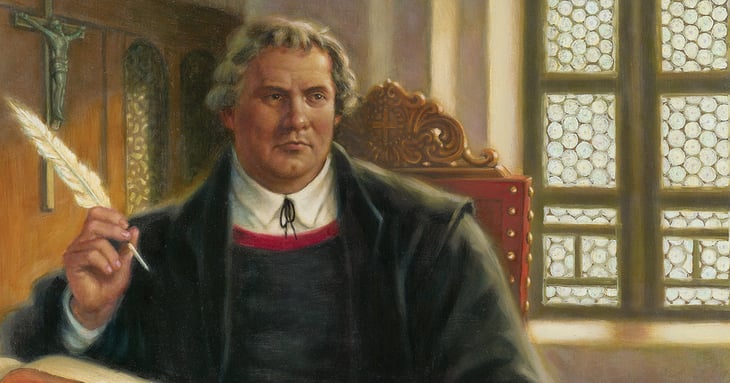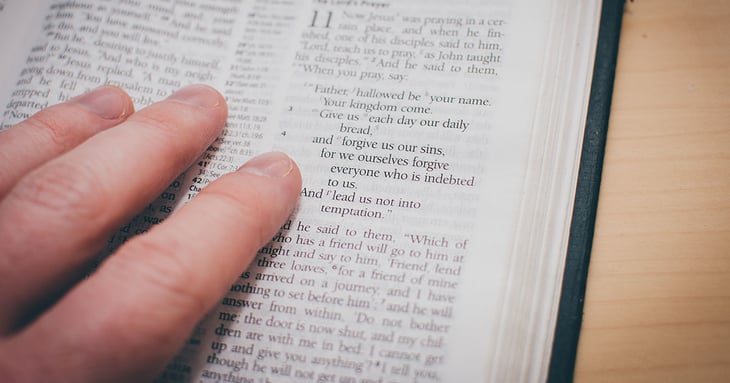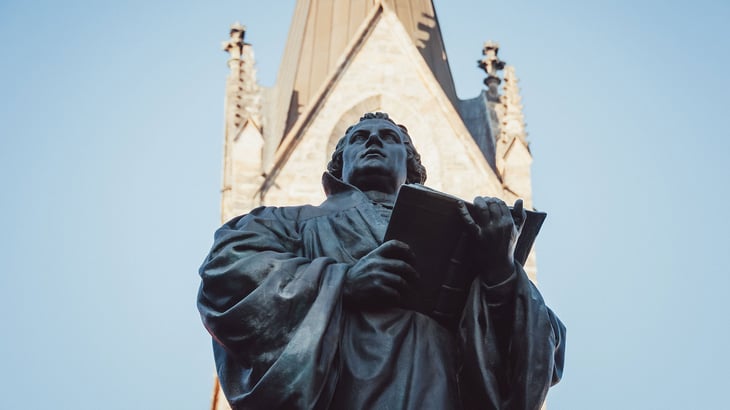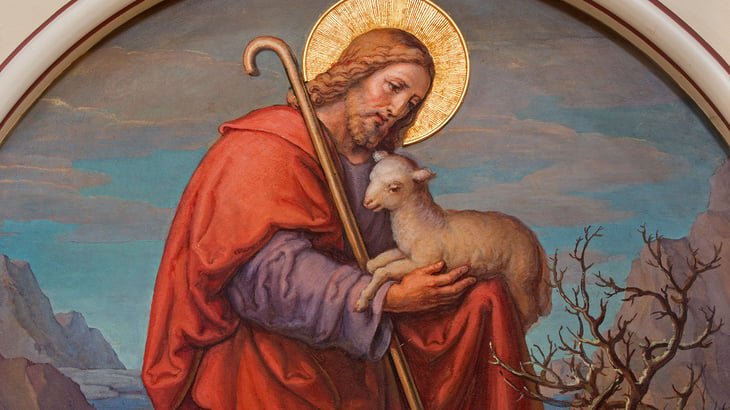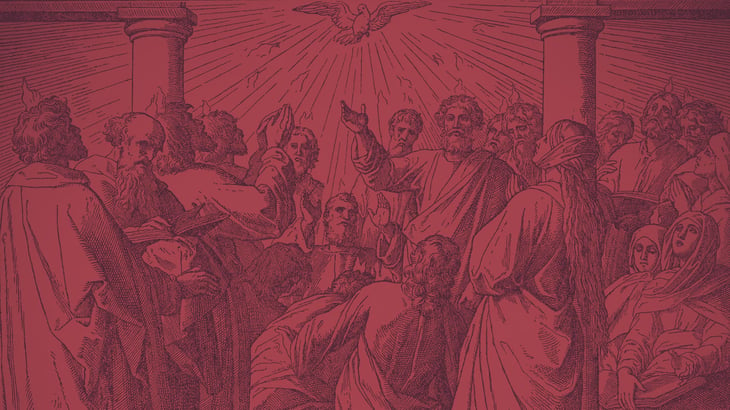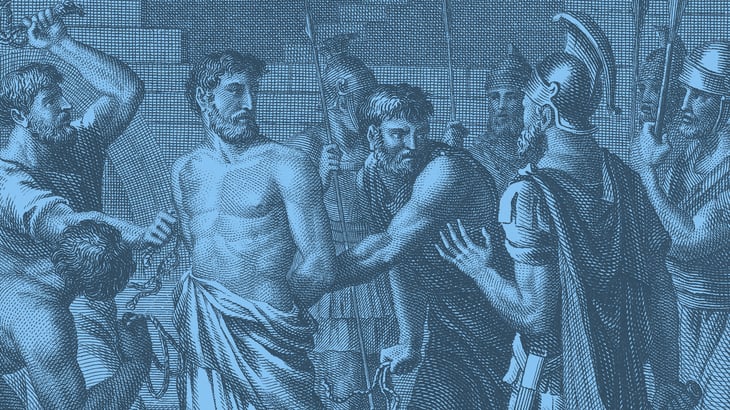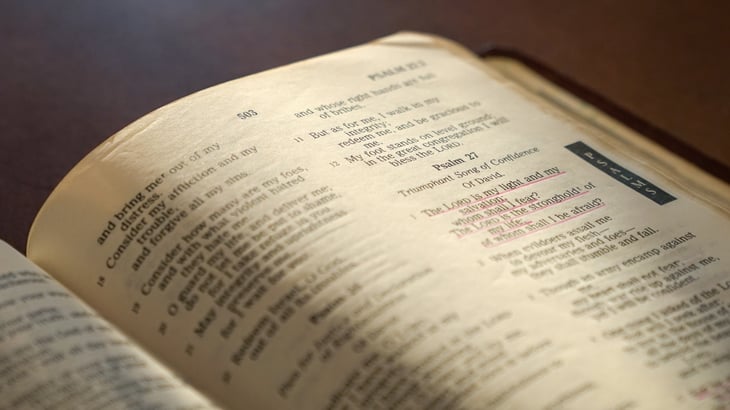Luther’s Teaching on Law and Sin
Martin Luther was a phenomenal theologian. He wrote many theses during his lifetime, and he also presided over and responded to many of the academic disputations of others in order to discuss their points and validity. A new edition of Luther’s Works, Volume 73 on disputations, dives more deeply into Luther’s arguments from December 1537 to July 1545. Read an excerpt below from the newest volume concerning arguments on Law and sin.
Luther’s Catechism Series: The Second Petition of the Lord’s Prayer
Luther distinguishes himself from all interpretations of the Second Petition before him, in that in the catechism he bases the kingdom of God in the Gospel of Christ, which in the First Petition he had foreshadowed under the topic of pure doctrine. The ‘Kingdom of Grace’ of the heavenly Father is here on earth only there to be found where the Gospel of our salvation through Christ’s sacrificial death is “genuinely preached throughout the world.” This is and remains Luther’s fundamental insight: How the Church is ‘creatur verbi,’ thus also God’s Kingship is governance through the Word from the cross.
Digging Deeper into Scripture: Romans 5:6-15
The Lord Almighty is a gracious, loving Father. This is exemplified throughout the Bible, both in His compassion for the Israelites and in His Son, Jesus Christ. Just as God daily shows grace to each and every one of His children, we too must also strive to share this grace with others.
Preaching the Gospel Against Three Enemies
As Lutherans, we preach and teach the biblical text. Whether we choose one of the four readings from the lectionary or preach through a sermon series, the text drives our preaching. As we prepare Bible studies, even if they are topical, the text of the Scriptures must always lead and inform our teaching.
Psalm 23: Christ Is Our Shepherd
“The LORD is my Shepherd; I shall not want.” Psalm 23 is one of the best-known Psalms, often a poem we turn to for refuge during times of distress or uncertainty. But why has this passage become so popular? Read from the latest Concordia Commentary, Psalms 1–50, by Timothy Saleska, answering this question below.
Digging Deeper into Scripture: Acts 2:1–21
As Pentecost approaches, take a few minutes to read Acts 2:1–21, the story of the Holy Spirit descending on the disciples. This passage is the fulfillment of an Old Testament promise and is in response to Jesus’ saving work on the cross.
Our Current Suffering and Eternal Salvation
Dealing with daily suffering is a sad reality of living in a fallen world. But in Romans 8:18, Paul reminds all believers that our current suffering is worth the beauty of heaven and seeing our Savior’s face after our time on this earth is done. Read commentary by Michael Middendorf on this verse from Romans 1–8, Volume 1 of the Concordia Commentary series below.
Luther’s Catechism Series: Second Article of the Apostles’ Creed
The words “passus sub Pontio Pilato, crucifixus, mortuus et sepultus” are translated by the reformer: “suffered under Pontius Pilate, crucified, dead, and buried”; admittedly, the introductory text to the Large Catechism reads: “(who) had suffered under Pontius Pilate, is crucified, dead, and buried.”
Psalm 27 Commentary: True Salvation in God
One of the themes that weaves its way through Psalm 27 is the belief that true salvation is to be found only in the presence of Yhwh. The speaker desires to dwell in the house of Yhwh so that he can see “the beauty of Yhwh” (27:4). And he knows that in His house, Yhwh will protect him from his enemies (27:4–6). When he feels threatened, he is determined to seek Yhwh’s presence, and he asks Yhwh not to hide His presence from him or to forsake him (27:8–9). And the final encouragement from the speaker is to “wait for Yhwh” (27:14).
Luther’s Catechism Series: First Article of the Apostle’s Creed
Luther’s interpretation of the First Article is shaped through and through by his astonishment about the character of life as a gift. In this way, the reformer confronts that aspect which Martin Heidegger terms the “foundational question for metaphysics”: “Why is there that which exists rather than the more probable nothingness?” But Luther does not consider this as an abstract philosophical question; instead, from the vantage point of the wonderment of a child: “Why is there something and not nothing?” He considers this from the point of view of one who ventures to trust, on the basis of the biblical witness that tells of a God who dispenses life.
